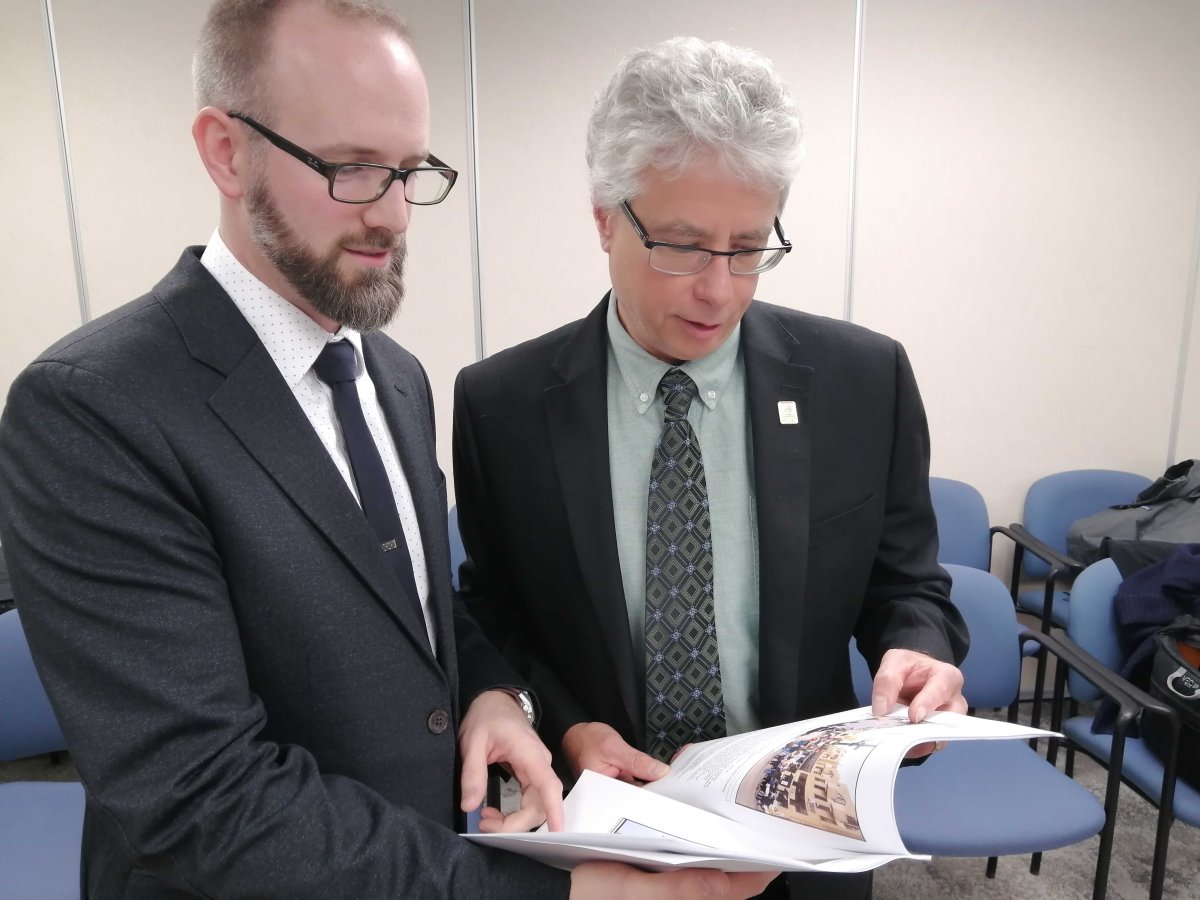London city staff are unveiling a proposal to develop a comprehensive action plan to get the city to net zero greenhouse gas (GHG) emissions by 2050, seven months after the city declared a climate emergency.

A report going to the Strategic Priorities and Policy Committee on Monday outlines actions that can be taken immediately, actions to take within the next four months, and actions to take within one year — all with the goal of reducing energy use and increasing climate change mitigation.
“As you can imagine, there are lots of people that work at the city, lots of things the city is responsible for, lots of things the city does,” said Mike Fabro, manager of sustainability and resiliency at the City of London.

“We want to make sure we get this right because it is extremely important.”
“As I mentioned in my presentation, if we don’t get this right nothing else really matters. There’s a certain amount of time required to engage the correct and the right amount of people, stakeholders — First Nations included — to really ensure that we have voices from all around the community at the table for this because ultimately it will affect everyone.”
Recommendations to mitigate and adapt
The recommendations include a variety of actions involving various timelines. They include immediately establishing an internal team to help implement climate change emergency initiatives, launching the process to develop a new Climate Emergency Action Plan (CEAP), and creating a new climate emergency area on the city’s website.

One of the key recommendations is to develop a Climate Emergency Evaluation Tool (CEET) that will be used to review all major existing programs and projects.
“We’re ultimately seeing it as a qualitative screening tool,” Fabro explained.

Get breaking National news
“Ultimately, we want to be able to apply it to as many things as possible — so programs, specific projects and policies, that sort of thing — to really evaluate whether or not what we’re looking at has a specific impact on greenhouse gas emissions.”
Recommendations also include immediately advocating for more action from upper levels of government, prioritizing active transportation and transit infrastructure within four months, and creating a clear strategy for climate change adaptation with a focus on impacts of severe weather like flooding within one year.
The goal to achieve net zero community GHG emissions by 2050 is in line with U.N. recommendations. Fabro says it also takes into account the lifespan of many fossil-fuel burning items like cars and furnaces.
“When it comes time to replace those things, there should be no incentive to replace it with another archaic technology,” Fabro explained.
“Having that 2050 target as our base, which we would like to bring closer, takes into account that sort of life-cycle renewal and replacement cycle as something we think is very achievable on a community scale.”
Projected local impacts of climate change
City staff say “down-scaled global climate models and recent empirical evidence” suggest London can expect warmer, wetter weather and an increase in frequency and intensity of severe weather events.
Specifically, extreme heat and cold which pose significant health risks; an increase in Lyme and vector bourne diseases as “previously inhospitable regions in Canada” become more suitable for mosquitoes, ticks, and fleas; and increases in insect and disease outbreaks which could negatively impact forest growth and their ability to store carbon, while warming and wetter weather could lead to loss of isolated habitats and loss of vulnerable species.
City staff say climate change will also result in increased financial costs for residents, especially in relation to increased flooding.
The report says “home insurance premiums, transportation and home energy costs and the availability and cost of many imported goods” are already experiencing negative impacts in connection with climate change.
The report also estimates potential additional impacts, including the possibility of increased international migration to London from areas hit harder by climate change; reduced regional water security; and impacts on “food systems and other ecosystem services due to biodiversity loss.”
Cost of implementation
What the report does not contain, however, are any dollar figures tied to the recommendations. Kelly Scherr, city engineer and managing director of environmental and engineering services, says that’s intentional.
“For the next year, city staff, our partners in the community are going to be having the conversation about what’s actually in the action plan,” she said.
“The report that goes to council next week is talking about launching that process. What comes out of that will be a costed list of projects and priorities and programs that will help us move things forward after that.
“It would be premature to speculate because we actually don’t know what will come out of the action plan yet.”
The report will be presented to the Strategic Priorities and Policy Committee on Monday.
— with files from 980 CFPL’s Jaclyn Carbone.













Comments